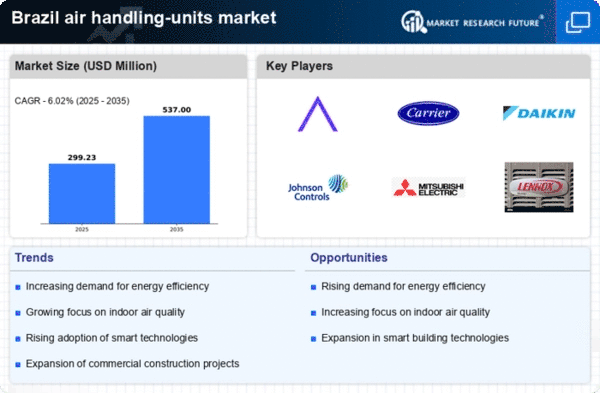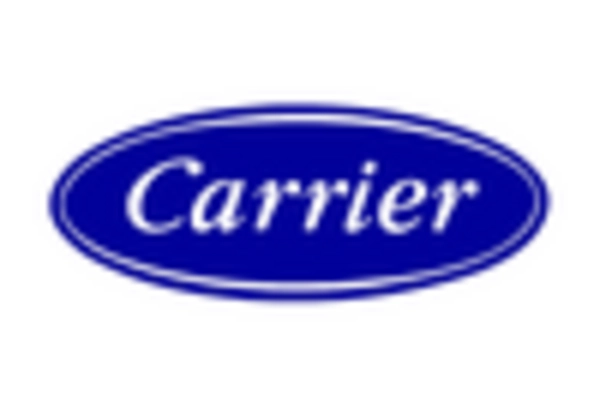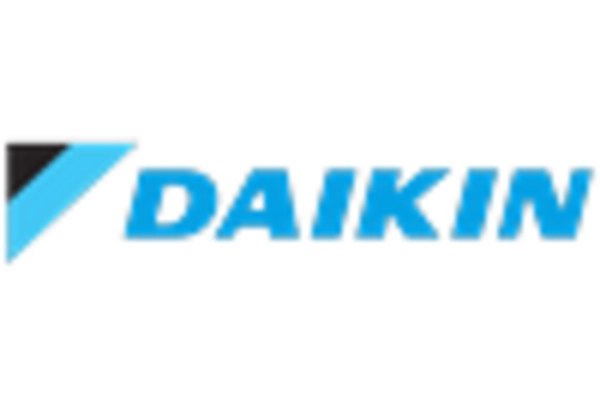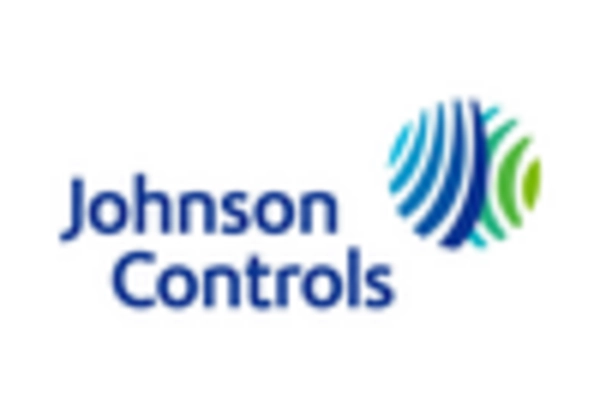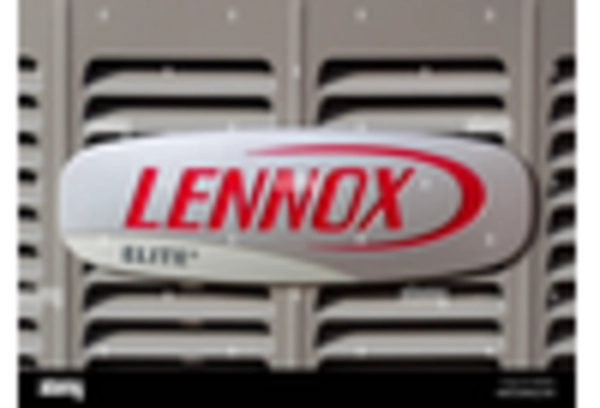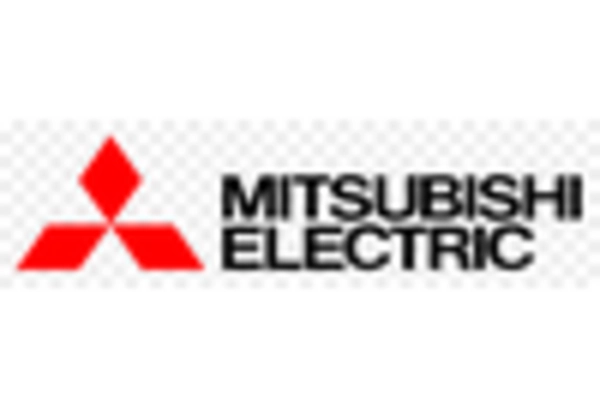Regulatory Compliance and Standards
The air handling-units market in Brazil is increasingly influenced by stringent regulatory compliance and standards aimed at improving indoor air quality and energy efficiency. Government regulations mandate that HVAC systems, including air handling units, meet specific performance criteria. This has led to a surge in demand for advanced air handling units that comply with these regulations. For instance, the Brazilian government has implemented standards that require a minimum energy performance for HVAC systems, which has driven manufacturers to innovate and enhance their product offerings. As a result, the market is witnessing a shift towards energy-efficient models, which not only comply with regulations but also reduce operational costs for end-users. This regulatory landscape is expected to continue shaping the air handling-units market, pushing for higher efficiency and better air quality solutions.
Rising Awareness of Indoor Air Quality
There is a growing awareness among Brazilian consumers and businesses regarding the importance of indoor air quality, which is significantly impacting the air handling-units market. As health concerns related to air pollution and allergens become more prevalent, the demand for air handling units that can effectively filter and circulate air is increasing. Studies indicate that poor indoor air quality can lead to various health issues, prompting both residential and commercial sectors to invest in better air handling solutions. This trend is particularly evident in sectors such as healthcare and education, where maintaining high air quality standards is crucial. Consequently, manufacturers are focusing on developing air handling units equipped with advanced filtration technologies and monitoring systems, thereby enhancing their appeal in the market. This heightened awareness is expected to drive growth in the air handling-units market as stakeholders prioritize health and well-being.
Urbanization and Infrastructure Development
Brazil's rapid urbanization and ongoing infrastructure development are pivotal drivers of the air handling-units market. As cities expand and new commercial and residential buildings emerge, the demand for efficient HVAC systems, including air handling units, is on the rise. According to recent data, urban areas in Brazil are projected to grow significantly, leading to increased construction activities. This growth necessitates the installation of advanced air handling units to ensure optimal air quality and climate control in new buildings. Furthermore, the government's investment in infrastructure projects, such as transportation and public facilities, further stimulates the demand for air handling units. Consequently, the air handling-units market is likely to benefit from this urban expansion, as more buildings require sophisticated air management solutions to meet the needs of a growing population.
Technological Integration and Smart Solutions
The integration of technology and smart solutions into air handling units is emerging as a key driver in the Brazilian market. With the rise of smart buildings and the Internet of Things (IoT), there is a growing demand for air handling units that can be remotely monitored and controlled. This technological advancement allows for improved energy management and operational efficiency, which are critical in today's competitive landscape. Brazilian consumers and businesses are increasingly seeking air handling units that offer connectivity features, enabling them to optimize performance and reduce energy consumption. Moreover, the incorporation of smart sensors and automation in air handling units enhances their functionality, making them more appealing to end-users. As the trend towards smart technology continues, the air handling-units market is likely to see a shift towards more innovative and integrated solutions that cater to the evolving needs of consumers.
Economic Growth and Investment in HVAC Systems
Brazil's economic growth is a significant driver of the air handling-units market, as increased investment in various sectors leads to higher demand for HVAC systems. As the economy expands, businesses are more inclined to invest in modern air handling units to enhance operational efficiency and comfort. The commercial sector, in particular, is witnessing a surge in demand for advanced HVAC solutions, driven by the need for energy-efficient systems that can reduce operational costs. Recent economic indicators suggest that sectors such as retail, hospitality, and healthcare are experiencing growth, which in turn fuels the demand for air handling units. This economic momentum is likely to continue, providing a favorable environment for manufacturers and suppliers in the air handling-units market to thrive and innovate.


